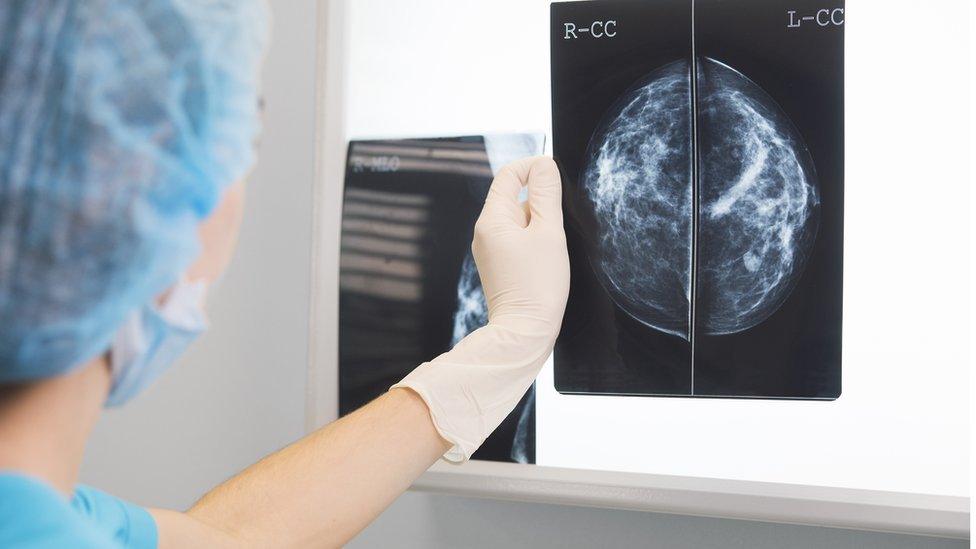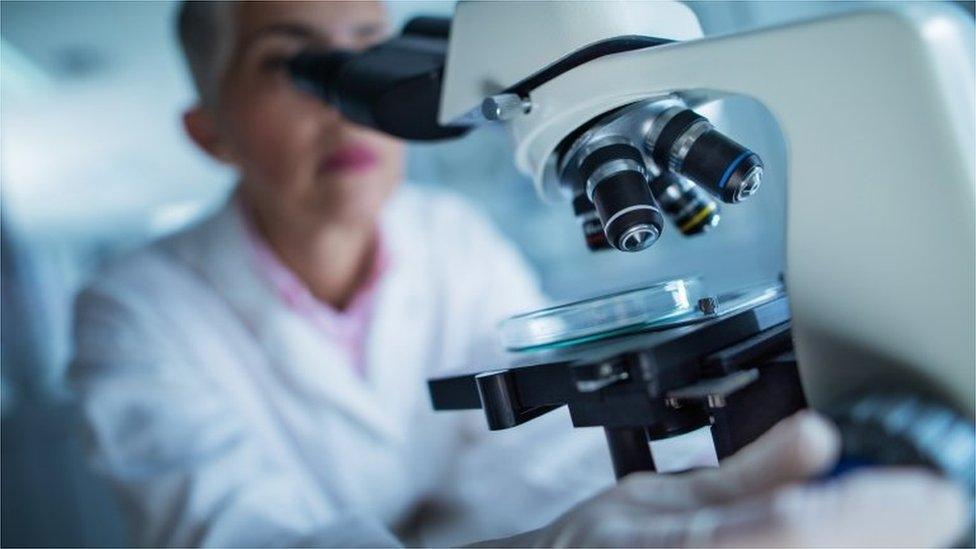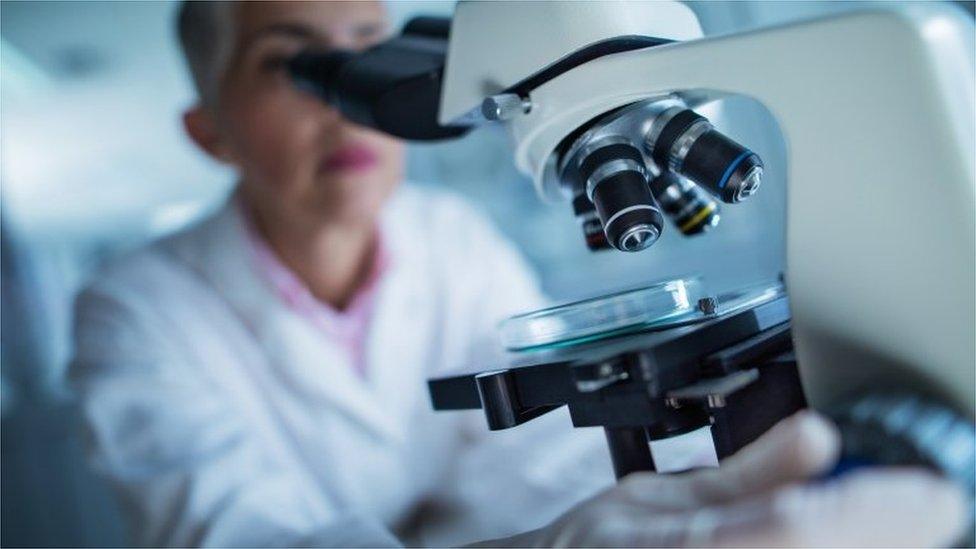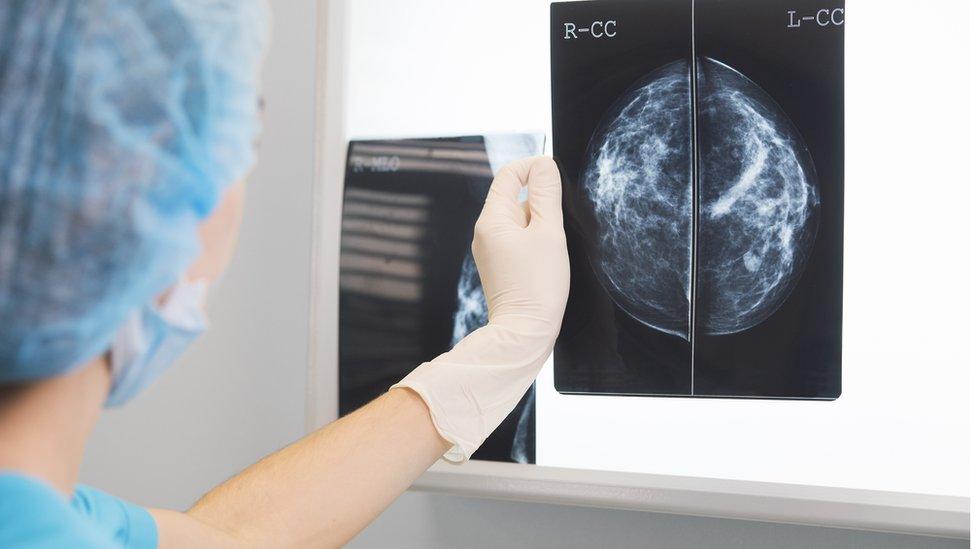NI cancer rates increase by 15%
- Published
- comments

Cancer risk is highest in people over 65
The number of cancer cases in NI increased by 15% from 2008 to 2017, according to the latest statistics.
The figures include a 66% increase of liver cancer in women and a 34% increase of kidney cancer in men.
Lesley Anderson of the NI Cancer Research Registry said the overall increase was largely due to the ageing population.
Cancer risk was strongly related to age with 63% of cases occurring in people over 65.
Ms Anderson said there had been an improvement in survival rates across several types of cancer.
However, the trends were not all favourable: "One-in-five patients die within five months of diagnosis, and that's because of diagnosis at a late stage."
She expressed concern at steep increases in liver cancer in 2018 - 2017 (66% in women and 28% in men), which was most likely due to increased alcohol consumption.
One important improvement came in the figures for the incidence of cervical cancer, down by 22% in 2008 - 17.
"We think that's likely due to screening and the HPV vaccination," Ms Anderson said.

The increase in cancer cases was slightly higher for women than for men
The statistics show that among men the most common types of cancer diagnosed between 2013 - 17 were prostate, bowel and lung cancer.
Among women during this period, breast cancer accounted for 30% of all female cancers.
The number of women diagnosed with cancer rose from 4,082 cases in 2008 to 4,744 cases in 2017, a 16% increase.
The rate of increase for men was slightly lower, from 4,187 in 2008 to 4,777 in 2017, a 14% increase.
There was a 17% decrease in ovarian cancer in 2008 - 2017.
Rates of breast cancer increased by 1.3% per year over the longer period of 1993 - 2017.
Incidents of cancer in 2013 - 17 were 10% higher in the most deprived areas compared to the NI average. They were 4% lower than average in the least deprived areas.
The five-year survival rate for patients diagnosed with cancer in 2007 - 2011 was higher for women (57%) than for men (54%).
At the end of 2017 there were 63,413 people living in Northern Ireland who had been diagnosed with cancer since 1993.
The registry, based at Queens University Belfast, produces statistics on cancer incidence, prevalence and survival in Northern Ireland.
- Published7 March 2019

- Published25 October 2018
